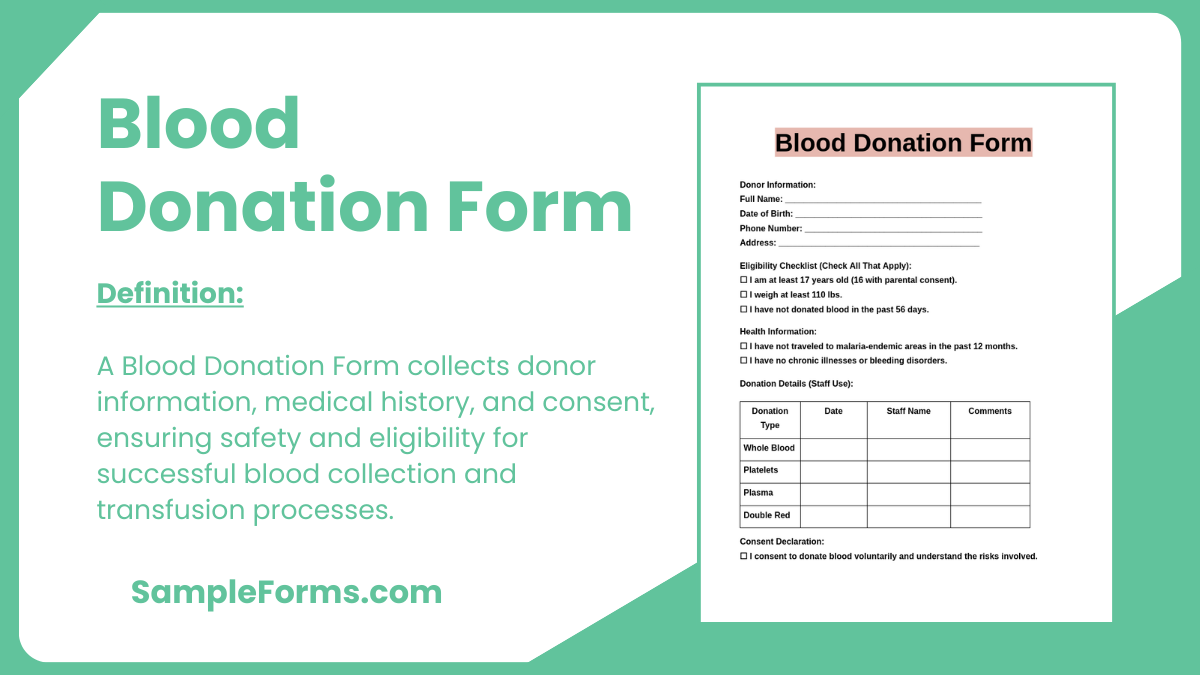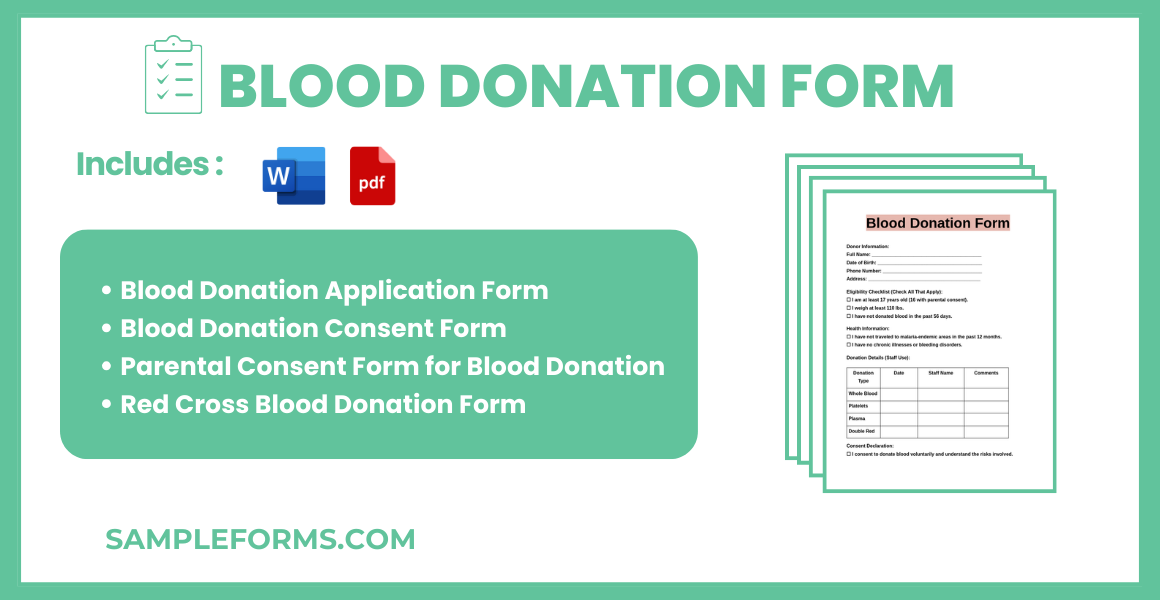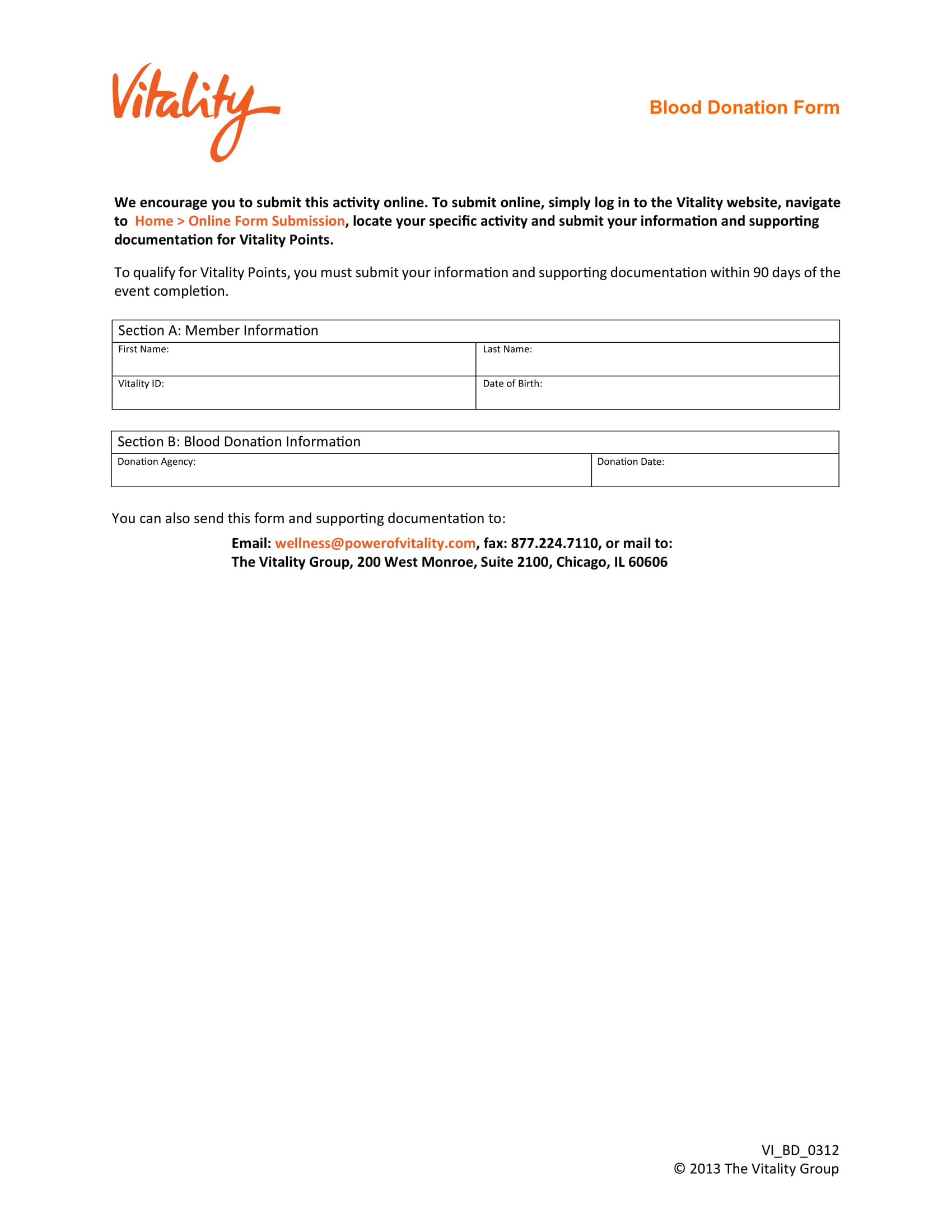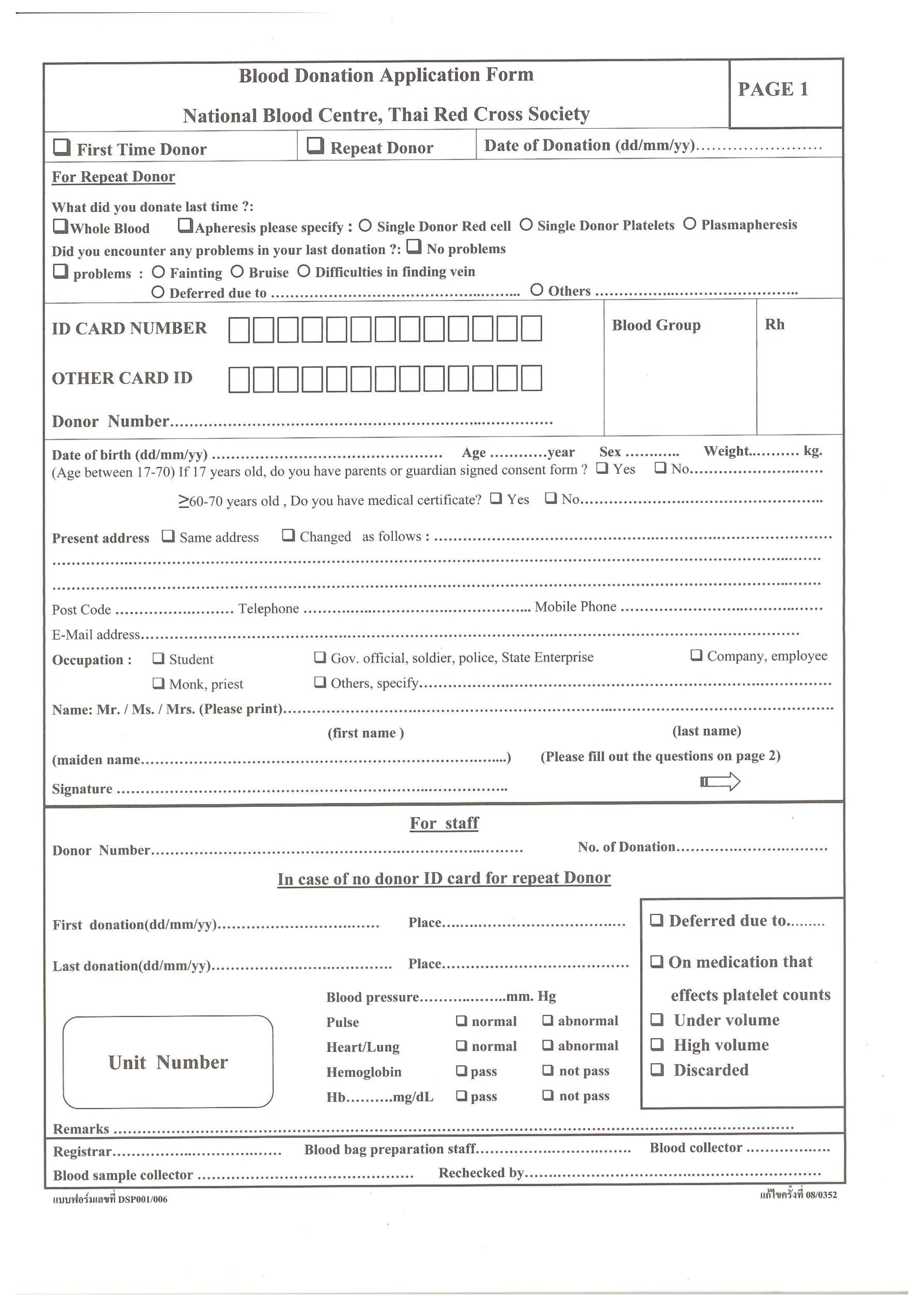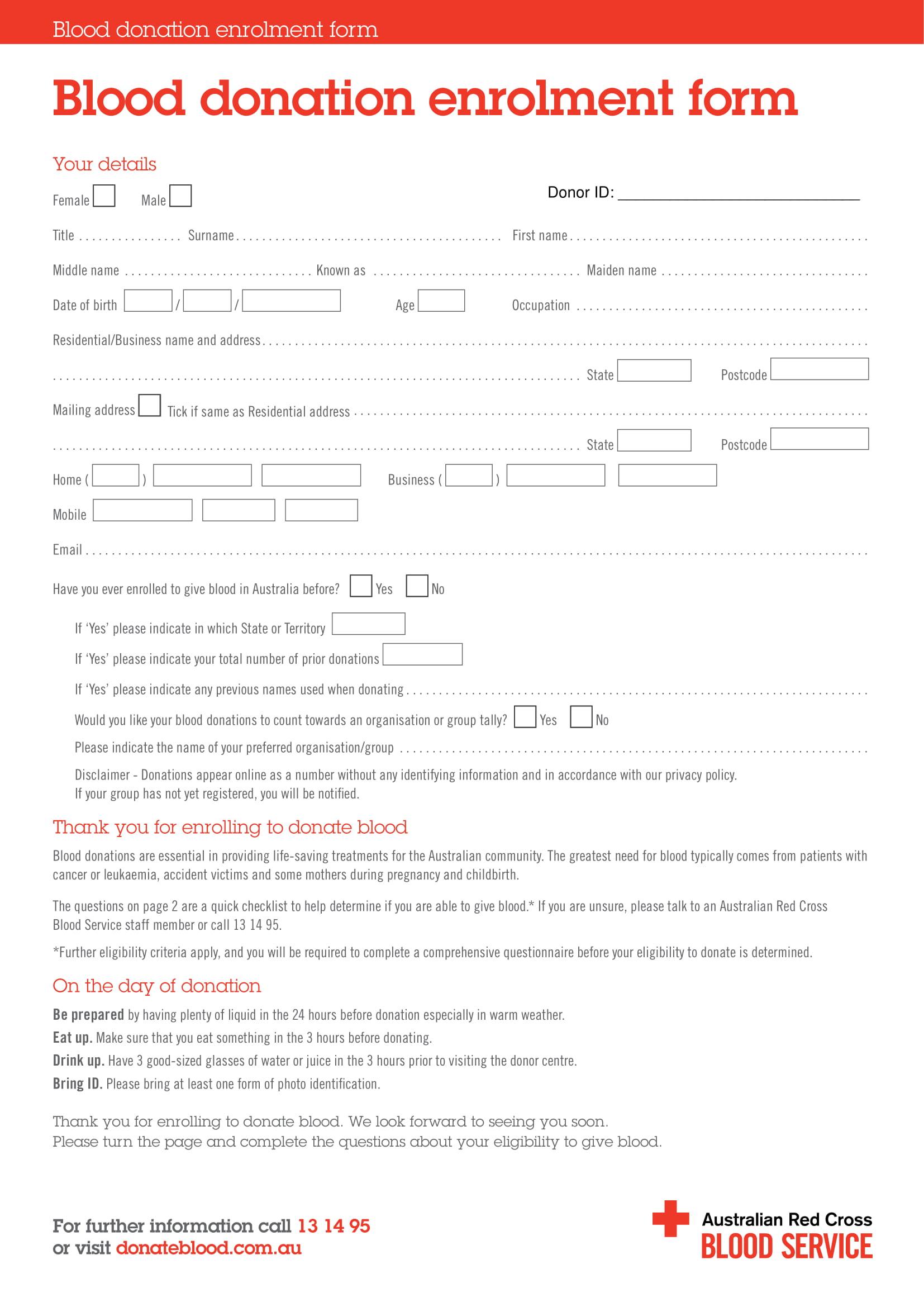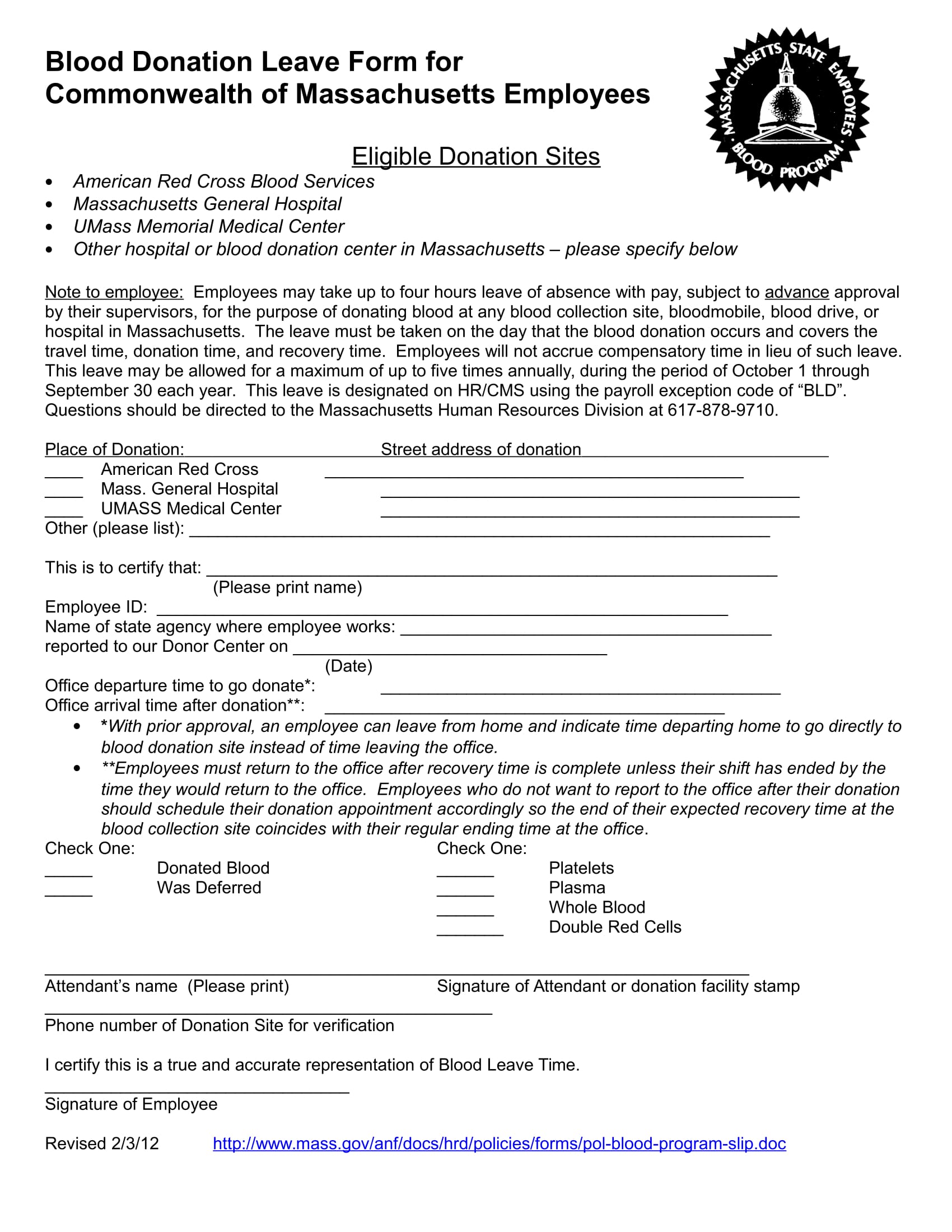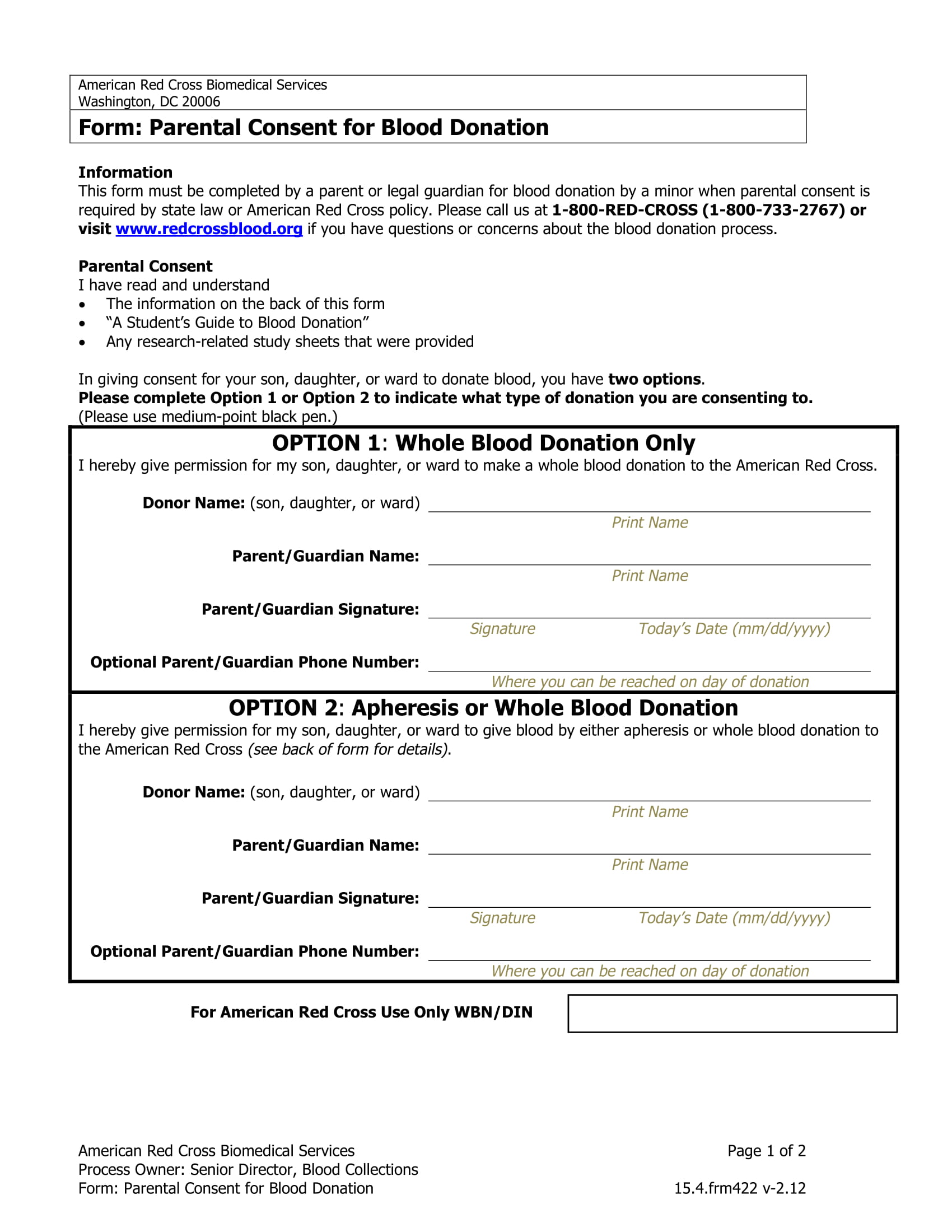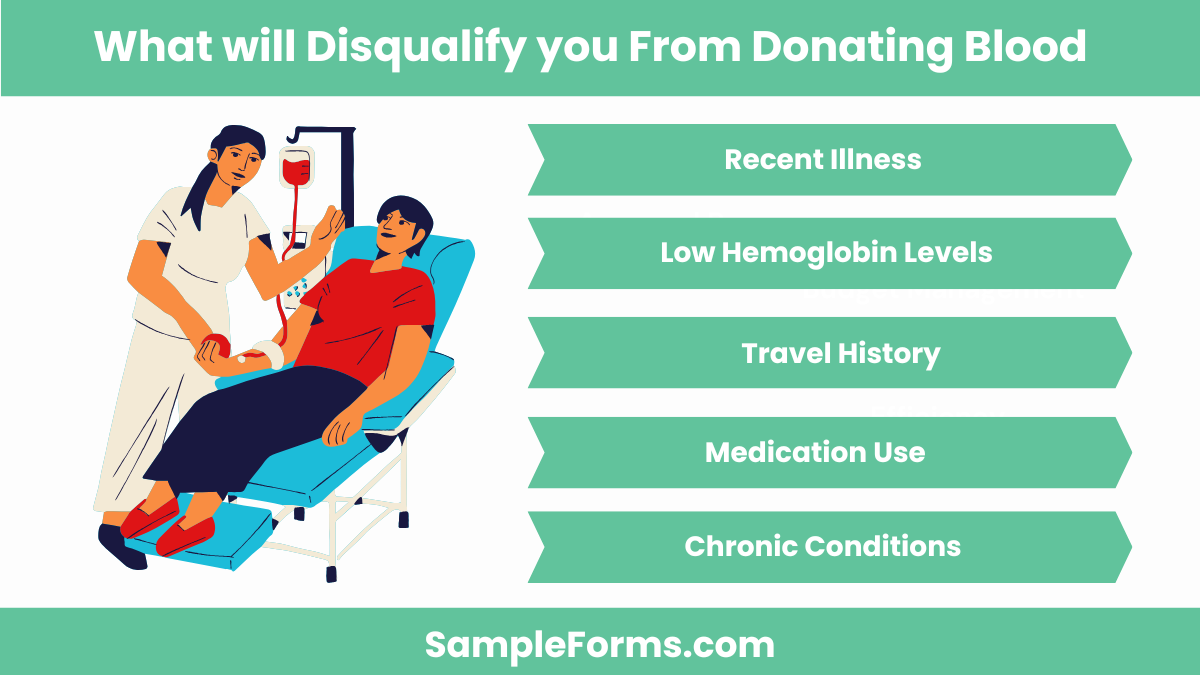The Blood Donation Form is essential for anyone interested in donating blood. This form captures the necessary details to ensure a smooth and safe donation process. From medical history to contact information, it helps determine eligibility. Along with the Donation Form, it’s crucial in making sure that the donor is healthy and that the blood donation is processed properly. This form ensures both the safety of the donor and the recipient, making it a vital part of the donation process. Understanding the form’s contents and purpose can make the donation process more efficient and informed. Whether you’re a first-time donor or an experienced one, this guide provides all the details you need.
Download Blood Donation Form Bundle
What is Blood Donation Form?
A Blood Donation Form is a document used by blood banks or donation centers to collect the necessary information from donors. It includes questions about medical history, personal details, and consent to ensure the blood donation is safe for both the donor and the recipient. By filling out the form, donors confirm that they are eligible to donate blood and agree to the terms and conditions set forth by the organization.
Blood Donation Format
Donor Information:
Name: ____________________________
Age: ____________________________
Gender: ____________________________
Contact Details: ____________________________
Health Check Details:
Blood Pressure: ____________________________
Hemoglobin Level: ____________________________
Medical Conditions: ____________________________
Donation Information:
Blood Type: ____________________________
Volume Donated: ____________________________
Donation Date: ____________________________
Consent to Donate:
Agreement Statement: ____________________________
Signature: ____________________________
Acknowledgment:
Certificate of Donation: ____________________________
Date Issued: ____________________________
Authorized Personnel Signature: ___________________________
Blood Donation Application Form
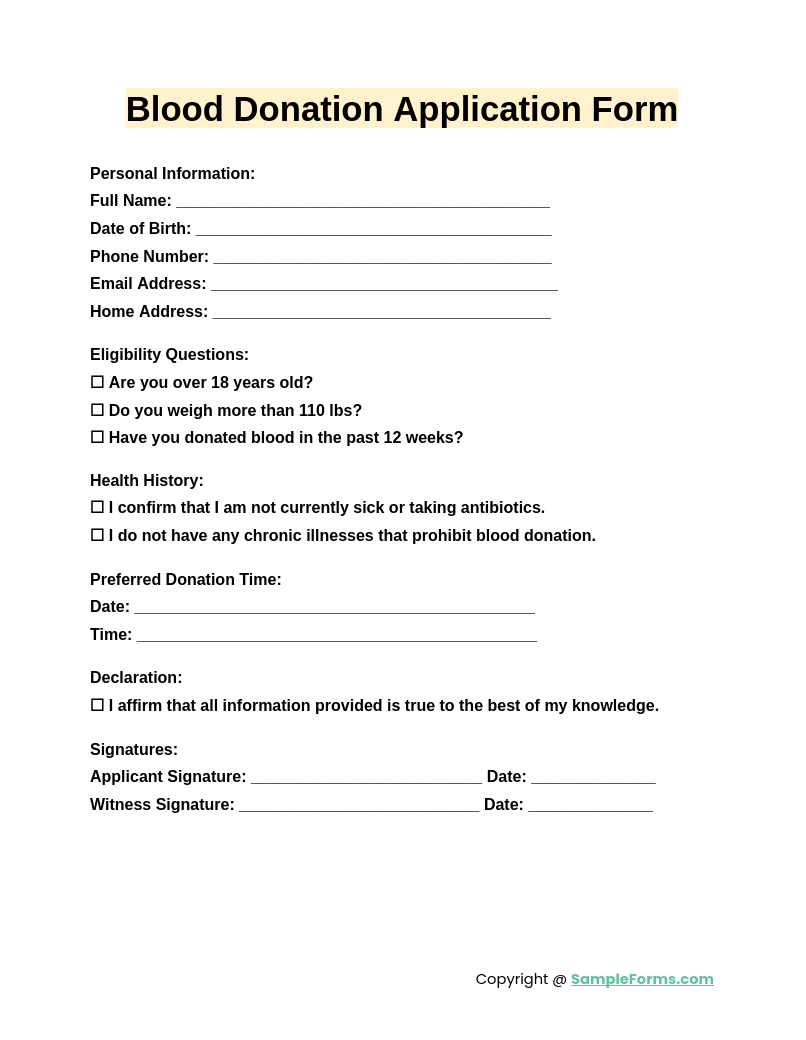
A Donation Receipt Form ensures proper documentation of each donation. It includes donor details, the amount donated, and the date, offering the necessary proof for both the donor and the receiving organization.
Blood Donation Consent Form
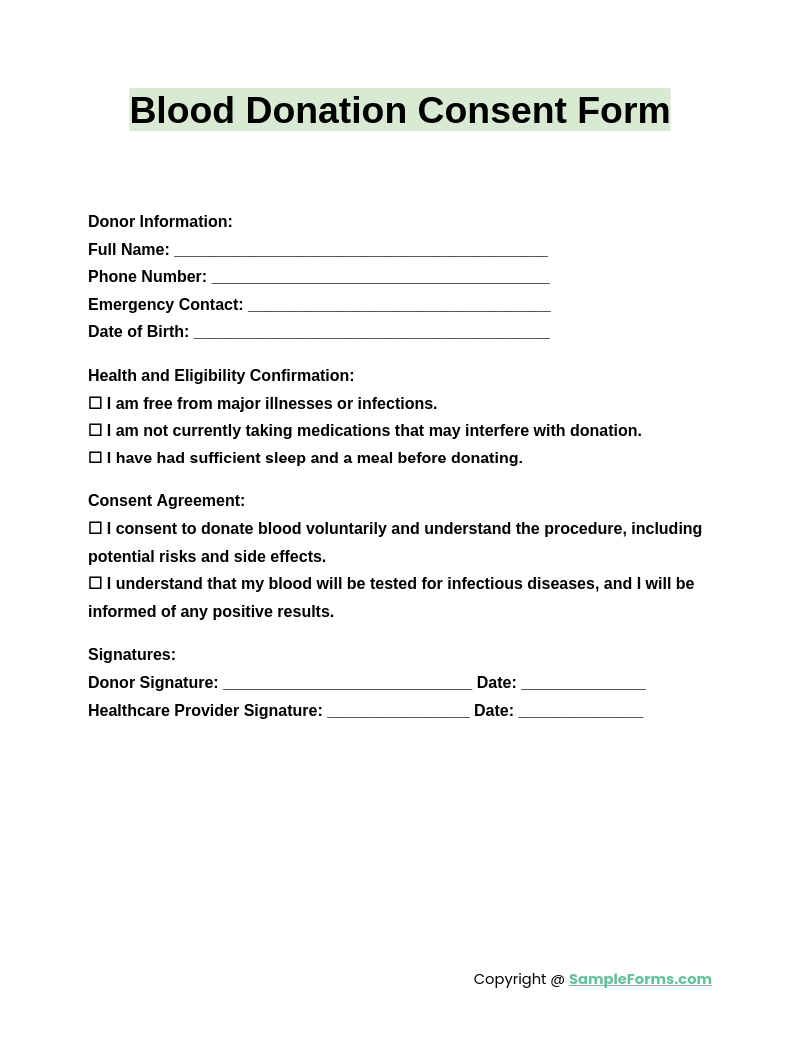
The Donation Request Form outlines the details of a donation request, specifying the organization’s needs. It helps potential donors understand the purpose of the donation and how their contribution will be utilized.
Parental Consent Form for Blood Donation
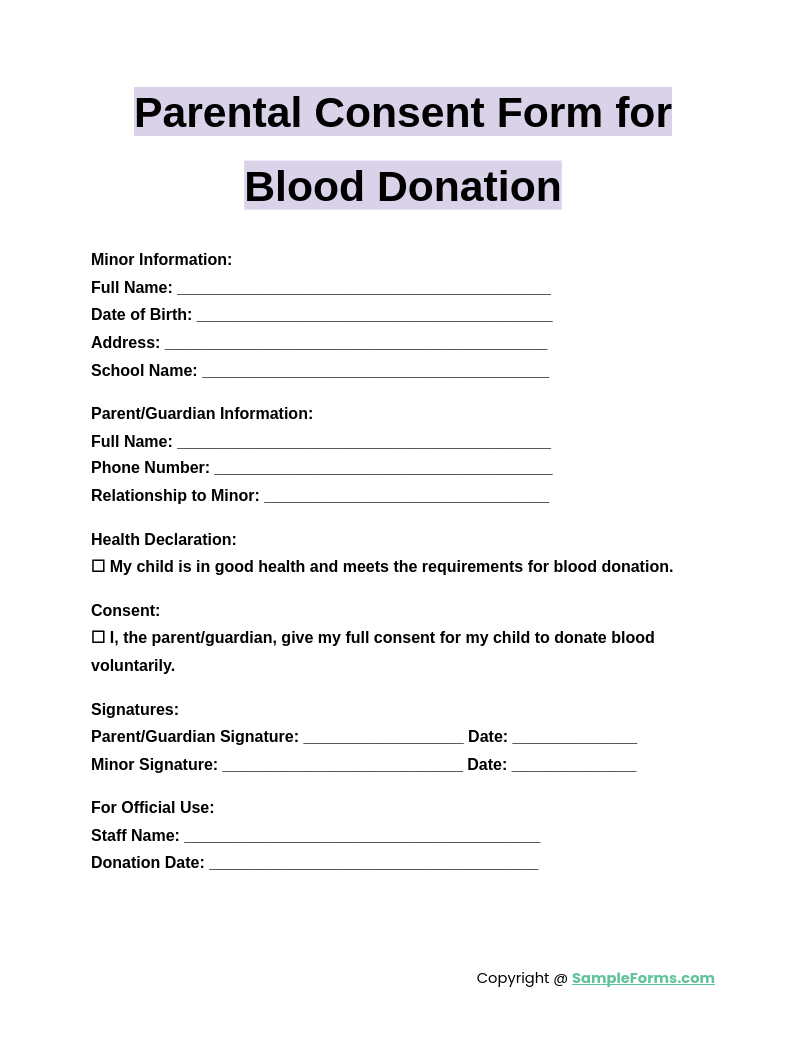
A Church Donation Form is used to collect contributions for church-related events or charitable causes. It tracks donations and ensures that every contribution is documented, promoting accountability in religious community outreach.
Red Cross Blood Donation Form
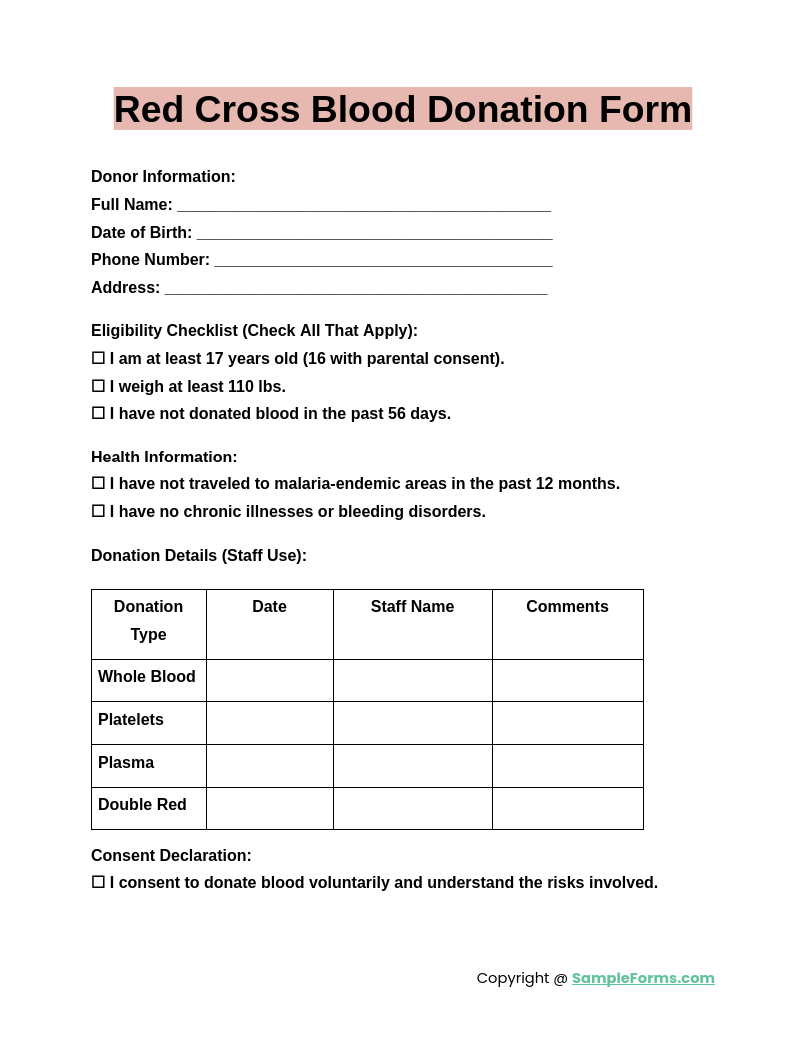
The Nonprofit Donation Form is a tool used by nonprofit organizations to record and acknowledge financial contributions. It guarantees that donations are properly handled and can be used for transparency in reporting purposes.
Browse More Blood Donation Forms
Blood Donation Form Sample
Blood Donation Application Form
Blood Donation Enrollment Form
Blood Donation Leave Form in DOC
Blood Donation Parental Consent Form
How do I write a donation form?
Creating a donation form requires careful attention to detail to ensure clarity and professionalism. Follow these steps for the best results:
- Title the Form Clearly: Start with a bold title, such as “Donation Information Form.”
- Donor Information Section: Include fields for the donor’s name, address, and contact details.
- Purpose Statement: Clearly specify the purpose of the donation and its intended use.
- Payment Methods: Provide multiple payment options, such as cash, credit card, or checks.
- Acknowledgment Section: Add a field for donor consent and signature. Car Donation Form templates can guide you in structuring donation-related forms effectively.
What will disqualify you from donating blood?
Certain medical and lifestyle factors can disqualify individuals from donating blood to ensure the safety of both donor and recipient.
- Recent Illness: Donors with recent infections or fevers may not qualify.
- Low Hemoglobin Levels: Anemia or low iron can prevent donation.
- Travel History: Visits to high-risk areas for diseases like malaria may disqualify you.
- Medication Use: Certain medications can make blood unsafe for recipients.
- Chronic Conditions: Conditions like heart disease or HIV disqualify donors. Consulting a Gift Affidavit Form helps ensure eligibility verification in various scenarios.
What are reasons you cannot donate blood?
Various health and lifestyle factors can prevent someone from donating blood safely. These reasons protect the donor and the recipient.
- Pregnancy: Pregnant individuals are typically disqualified for safety reasons.
- Tattoos or Piercings: Recent tattoos or piercings may delay eligibility.
- Weight Restrictions: A minimum weight of 50 kg is often required.
- Alcohol or Drugs: Recent use of alcohol or recreational drugs can disqualify a donor.
- Blood Disorders: Conditions like hemophilia prevent safe blood donation. Complete a Declaration Form to ensure full disclosure of health-related information.
How much do you get paid to donate blood?
In most cases, individuals are not paid to donate blood for charitable purposes, but plasma donations may offer compensation in specific cases.
- Charitable Donations: Blood donation for hospitals or Red Cross is unpaid.
- Plasma Compensation: Plasma centers may pay $20–$50 per session.
- Tax Benefits: Donations can sometimes qualify for tax deductions.
- Special Circumstances: Rare blood types may lead to special requests and benefits.
- Volunteer Incentives: Some organizations provide small tokens of appreciation. Refer to a Bio Data Form to maintain detailed donor records and eligibility.
What do you verify when giving blood?
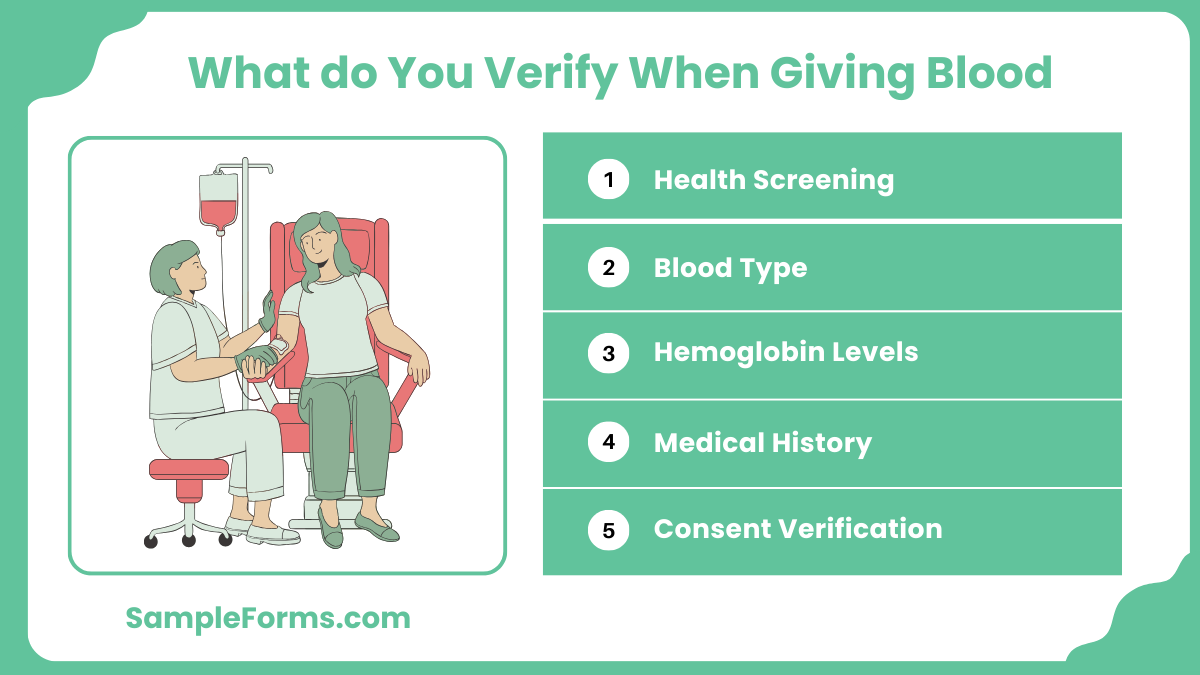
Before donating blood, several checks are performed to ensure donor safety and blood quality. Here’s what’s commonly verified:
- Health Screening: Blood pressure, heart rate, and general health are assessed.
- Blood Type: Donors’ blood types are identified for matching purposes.
- Hemoglobin Levels: Iron levels are tested to avoid anemia in donors.
- Medical History: Past illnesses or conditions are reviewed for eligibility.
- Consent Verification: Donors sign forms like a Refuse Organ Donation Form to confirm understanding and agreement.
What is the questionnaire for donating blood?
A blood donation questionnaire assesses donor eligibility, health status, and medical history to ensure safety. It includes questions on travel, medications, and lifestyle. Medical Report Form ensures all health data is accurately recorded.
Do you need a consent form to donate blood?
Yes, a consent form is mandatory for blood donation, especially for minors, to confirm understanding and agreement. Medical Waiver Form may accompany consent for additional medical conditions disclosure.
How to download a blood donation certificate?
Blood donation certificates can be downloaded online from official blood donation platforms. After donating, access your record and print the certificate. Medical Examination Form verifies donor eligibility in official records.
What is the rarest blood type?
AB-negative is the rarest blood type globally, found in less than 1% of the population. Medical Certification Form helps document and classify rare blood types in medical systems.
What form do I use for donations?
Donation forms vary by purpose, like monetary or organ donations. Use a Medical Release Form for health-related donation processes to ensure legal and health compliance during the procedure.
What age Cannot donate blood?
People under 16 or above 65 (without medical clearance) cannot donate blood. Dental Medical Clearance Form may also apply for those with specific dental treatments before donating.
Why shouldn’t you donate to Red Cross?
Concerns about transparency or administration fees may deter some donors. Against Medical Advice Form ensures informed decisions when choosing alternative organizations for blood donation.
What is the healthiest blood type?
O-negative is often considered the healthiest as it’s a universal donor. Medical Records Request Form helps track medical data related to blood type and its health implications.
What blood type do mosquitoes like?
Mosquitoes are most attracted to Type O blood. Medical Reimbursement Form may help cover expenses for medical issues arising from mosquito bites in high-risk areas.
Is donating blood good for you?
Yes, donating blood reduces iron levels, improving cardiovascular health. It also promotes cell regeneration. Use a Medical Invoice Form for health services related to your blood donation process.
In conclusion, the Blood Donation Form is a simple yet important step in the donation process. It ensures that the donor’s health is assessed and confirms their willingness to donate blood. This form, alongside other necessary documents like a Donation Request Form, contributes to a smooth and safe blood donation experience. Whether you’re donating for the first time or regularly, understanding the form helps make the process more effective, benefiting those in need.
Related Posts Here
-
Contest Registration Form
-
Waiting List Form
-
Restaurant Schedule Form
-
Mobile Home Bill of Sale
-
Landlord Consent Form
-
60-Day Notice to Vacate Form
-
Financial Statement Form
-
Product Evaluation Form
-
Construction Contract
-
School Receipt Form
-
Restaurant Training Form
-
Daily Cash Log
-
Volleyball Evaluation Form
-
Holding Deposit Agreement Form
-
License Agreement Short Form
